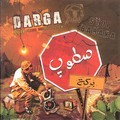With Eid al-Adha just a few weeks away, Moroccan sheep and cattle breeders are preparing their livestock for the market. However, citizens are worried about high prices due to the ongoing drought.
At the recent 16th International Agricultural Forum (SIAM), held from April 22 to 28 in Meknes, breeders voiced concerns about the impact of successive dry years and rising fodder costs on the prices of cattle for Eid al-Adha.
Ahmadi Mouloud, winner of the Best Breeder Award for the Tamhadit breed, which is spread in the Middle Atlas region in the cities of Meknes, Ifrane, Fez, Bolman, Khenifra, Beni Mellal, Azilal and Khemissat, complained about the decline in cattle numbers due to drought, limited grazing areas, and expensive feed.

«The government support isn't enough», he said, «but farmers are struggling to ensure there will be enough supply for Eid al-Adha this year». He anticipates a price increase of around 1,000 dirhams per animal compared to last year.
He went on to declare that «the drought affected the herds of this breed, as their numbers decreased significantly», although they are known for their structural characteristics that make them able to adapt to the most difficult climatic conditions as well as having a high ability to move and travel even in barren places.
Moubarak Taaza, from Ouarzazate, representing the Al-Bayda Mountain breed, echoed the same concerns. While known for their resilience, Taaza said drought has significantly reduced herd sizes of this breed.
He too anticipates a price increase of around 1,000 dirhams per animal compared to last year, driven by both drought and rising fodder costs. The sheep breeder acknowledged that «government support helps ease the burden on breeders, but emphasized its limitations».

Khali Mustapha, a Tamahdit breeder, anticipates a price increase of at least 500 dirhams for sacrificial animals this year, blaming «the high price of fodder and the successive years of drought».
The situation is dire for the Beni Kil breed in the eastern region. Known for their adaptability and productivity, even these resilient sheep were not spared from the drought's impact. «We're suffering», said Mahdaoui El Miloud, Best Breeder of Beni Kil sheep. «Eastern Morocco is struggling. Many shepherds have had to abandon their entire flocks. The numbers have fallen dramatically, and farmers have even migrated due to the relentless drought», he argued.
Despite acknowledging the limited government support, breeders like Mahdaoui El Miloud of the Beni Kil breed anticipate significant price increases this year, up to 2,000 dirhams compared to last year. Klikh Ahmed, a breeder of the popular Sardi breed, also expects a 1,000 dirham price hike due to drought and high fodder costs. He highlights the decline in Sardi herds, traditionally favored for Eid al-Adha.
Government measures to address potential shortages
In response to these concerns, the government has confirmed efforts to address potential shortages.
Government spokesman Mustapha Baitas announced in a weekly press briefing plans to double sheep imports for Eid al-Adha compared to last year.
«Discussions are ongoing regarding importing 600,000 sheep, with a possibility of exceeding this number», he said. Baitas also emphasized the «importance of streamlining import procedures to ensure a smooth Eid celebration».
The Minister of Agriculture, Fisheries, Rural Development, Water and Forestry, Mohamed Sadiki, reported that, as of April 16, over two million sheep have already been registered as part of Eid al-Adha preparations.





 chargement...
chargement...













